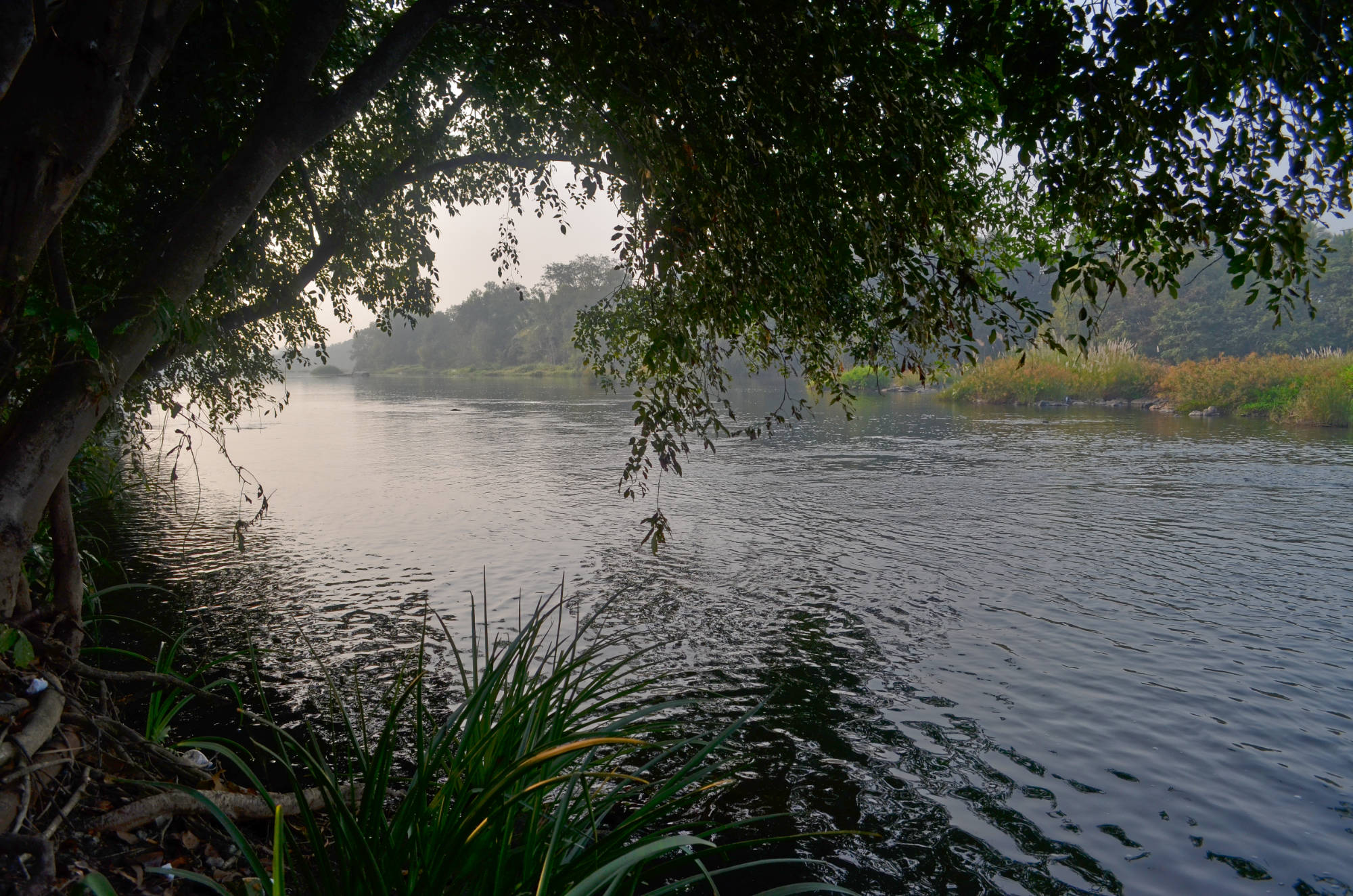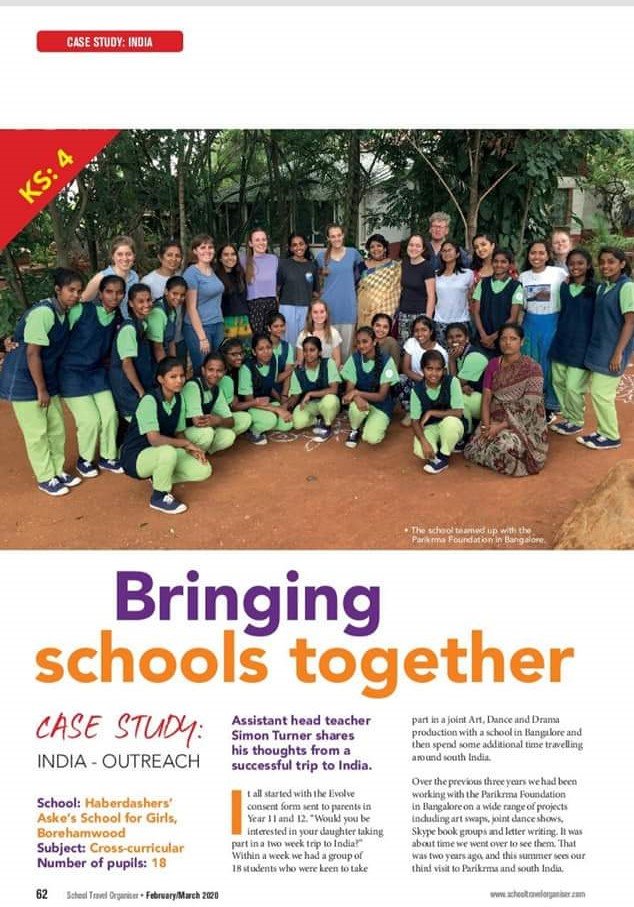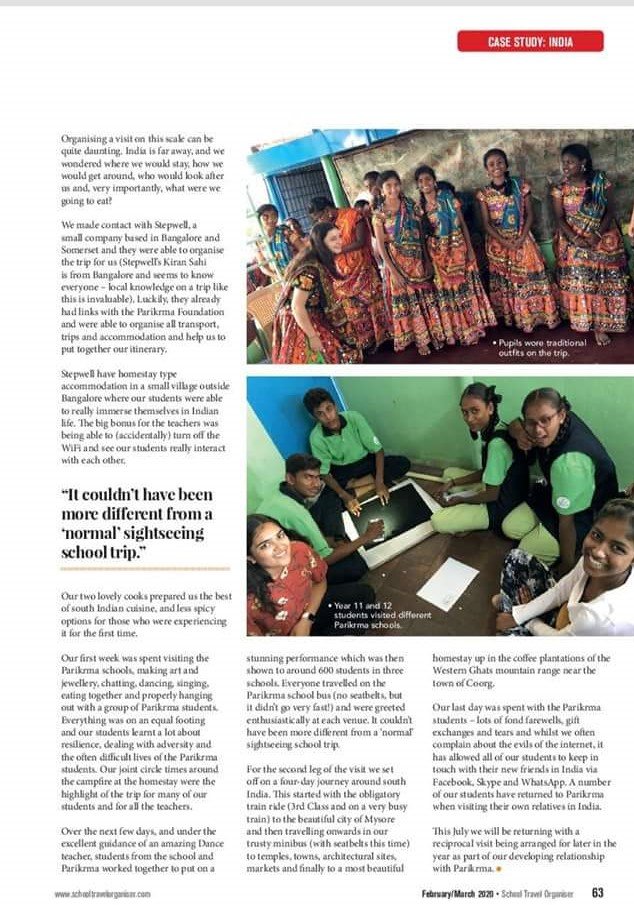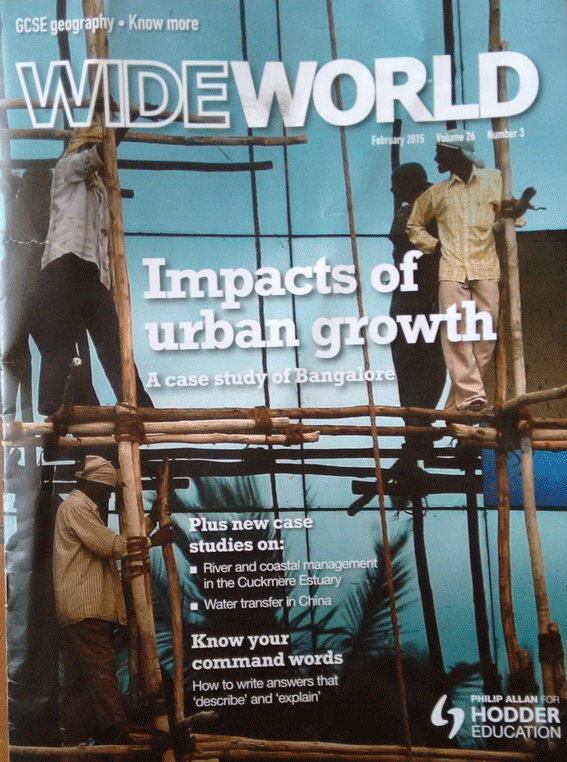
STEPWELL BLOG
Reflections on Geography, Teaching, Culture
‘Changing India: Looking through the lens of geographer photographers. Geographical Association Conference 2024
Kiran presented at the Geographical Association conference in April 2024.
The workshop introduced a photographic case study of change and development of the incredibly rapidly developing City of Bengaluru in South India.
Having grown up in the city this was a personal story telling and which took participants on a journey from the centre of Bengaluru out into the rural landscape where Kiran was born and brought up.
The case study was supported by images and an activity which enabled teachers to see how such a case study could be used in the classroom.
The presentation was delivered alongside Susan Knight from the Geographical Association International Special Interest Group - who has long specialised in geographical photography.
Ingenious India: Emerging cities and changing places. GA conference 2021.
The Geographical Association Annual Conference. 9th April 2021
Kiran and Imo presented this workshop alongside members of the Geographical Association International Special Interest Group (GAISIG).
The conference shared case study resources developed for KS3 to A level from our teacher study visits. The case study themes include sustainable textiles, place studies, water security, womens’ empowerment through craft, Bangalore city,
They were joined by Devika Krishnan, who collaborates with Stepwell on craft and textile programmes. She delivered a lecture introducing her establishment of autonomous micro business units from Kashmir to the slums of Bengaluru. Frankly, Devika took everyone’s breath away.
The Geographical Association Annual Conference. 9th April 2021
Kiran and Imo presented this workshop alongside members of the Geographical Association International Special Interest Group (GAISIG).
The conference workshop shared case study resources developed for KS3 to A level from our teacher study visits to India. The case study themes include: sustainable textiles, place studies, water security, womens’ empowerment through craft, Bangalore city,
They were joined by Devika Krishnan, who collaborates with Stepwell on craft and textile programmes. She delivered a lecture introducing her establishment of autonomous microbusness units from Kashmir to the slums of Bengaluru. Frankly, Devika took everyone’s breath away.
The case studies and resources are available to download from the Geographical Association website.
Bringing schools together- School travel organiser magazine - March 2020
Very excited to have been featured in this March 2020 issue of School travel organiser magazine, alongside Parkirma Humanity Foundation - who we have worked with for many years on creative workshops, partnership programmes, connecting classroom projects and PGCE/PGCE placements.
Many thanks to Simon Turner and Haberdasher Askes Girl School for their repeated endorsements.
Only Connect- Charney Manor 2019 conference presentation. February 2019.
A reflection on how teachers develop meaningful ways to teach about distant places. Imogen Sahi and Kiran Sahi. February 2019.
In February every year a group of Geography teachers gather together in a wonderful Quaker conference centre in Oxfordshire. They include teachers, educationalists, lecturers in Geography. All share a huge enthusiasm and intellectual interest in developing really good teaching methodogies for the teaching of Geography. We have been honoured to be part of this group for the last three years, and this year Kiran and Imogen were asked to present, and they chose the topic of connections.
A reflection on how teachers develop meaningful ways to teach about distant places. Imogen Sahi and Kiran Sahi. February 2019.
In February every year a group of Geography teachers gather together in a wonderful Quaker conference centre in Oxfordshire. They include teachers, educationalists, lecturers in Geography. All share a huge enthusiasm and intellectual interest in developing really good teaching methodogies for the teaching of Geography. We have been honoured to be part of this group for the last three years, and this year Kiran and Imogen were asked to present, and they chose the topic of connections.
The presentation examined the many and diverse ways that India is seen and ‘known’, attached to and represented both from within and without. They looked at the problem with prosaic data information about distant places. They then went on to look at the challenge that teachers have when teaching about distant places: To connect what is known from isolated information, to what is understood meaningfully, and they introduced ideas for teaching tools that they have seen being used, in distant place teaching.
We would be very happy to share the ppt of the presentation with anyone who would like to see it. X
Stereotypes- To affirm or to break? Charney Manor conference presentation 2018
Charney manor is an annual Primary Geography Conference run by members of the Primary Geography Special Interest group of the Geographical Association. In 2018 Imo was asked to present, and the topic that she chose was about Stereotypes. Her work bumps her up against the Stereotype constantly, in geography teaching and when visitors visit another country. Her talk and presentation examined the importance of the Stereotype in processing and understanding the world around us, and questioned to what extent these imprinted understandings should be affirmed or broken. Happy to share the ppt with anyone who would like to see it!
Stereotypes- To affirm or to break? Or…Thinking through the imprint/ Beyond the hashtag/ Skills to survive and conquer the stereotype….
A conference presentation and personal reflection. Imogen Sahi February 2018.
Charney manor is an annual Primary Geography Conference run by members of the Primary Geography Special Interest group of the Geographical Association. In 2018 Imo was asked to present, and the topic that she chose was about Stereotypes. Her work bumps her up against the Stereotype constantly, in geography teaching and when visitors visit another country. Her talk and presentation examined the importance of the Stereotype in processing and understanding the world around us, and questioned to what extent these imprinted understandings should be affirmed or broken. Happy to share the ppt with anyone who would like to see it!
The Birds of South India. RSPB presentations. Kiran Sahi 2017 and 2018
Kiran’s love of birds and particularly the bird life of India is infectious, and in the Autumn of 2017 and 2018 he was delighted to be asked to present to local groups of the RSPB in Somerset and Devon UK, to share his knowledge of the huge fecundity and diversity of the bird life of South India, and his images taken personally over the last ten years, and from the birding tours that we run.
Kiran’s love of birds and particularly the bird life of India is infectious, and in the Autumn of 2017 and 2018 he was delighted to be asked to present to local groups of the RSPB in Somerset and Devon UK, to share his knowledge of the huge fecundity and diversity of the bird life of South India, and his images taken personally over the last ten years, and from the birding tours that we run. Please do be in touch if you would like to hear more about the birds of India, and to hear about the birding tours that we will be planning.
Going global - keeping it real! The danger of the Single Story. Geographical Association Conference workshop April 2018
The world is a dynamic, complex and exciting place. Sometimes our students have misconceptions or a simplistic idea of what it is like in different places. Their perceptions may relate to how places were in the past, particular elements of their culture or how they are portrayed in the media. This workshop at the GA conference in 2018 looked at ways danger of the single story and ways that we can we give our students the opportunity to engage with different stories.
Going global - keeping it real! Geographical Association workshop April 2018
Catherine Owen, Isobel George & Imogen Sahi
Representing the GA International Special Interest Group @GA_ISIG
The world is a dynamic, complex and exciting place. Sometimes our students have misconceptions or a simplistic idea of what it is like in different places. Their perceptions may relate to how places were in the past, particular elements of their culture or how they are portrayed in the media. This workshop at the GA conference in 2018 looked at ways danger of the single story and ways that we can we give our students the opportunity to engage with different stories.
In her TED Talk, Chimamanda Ngozi Adichie tells of her roommate’s shock on meeting her. The roommate was surprised that Adichie spoke English so well, listened to Mariah Carey and could use a stove. Adichie suggests a reason for this:
‘Her default position toward me, as an African, was a kind of patronizing, well-meaning, pity. My roommate had a single story of Africa. A single story of catastrophe. In this single story there was no possibility of Africans being similar to her, in any way. No possibility of feelings more complex than pity. No possibility of a connection as human equals’
Adichie explains that she is concerned about the single story, not because it creates stereotypes which are untrue, but because the stereotypes are incomplete, making one story the only story.
She considers the use of power to tell the story of another person and ‘make it the definitive story of that person.’
Developing students’ understanding of places and people lies at the heart of what all geography teachers do, education must take the events of the wider world and distill them into relevant learning.
But in doing so we must consider the stories we present to our students; do we reinforce a single story or do we give our students the opportunity to engage with different stories?
We also need to consider the stories our students are hearing elsewhere; we can help them critically evaluate these stories, tackling misconceptions and offering alternative stories.
‘Stories matter. Many stories matter. Stories have been used to dispossess and to malign. But stories can also be used to empower, and to humanize. Stories can break the dignity of a people. But stories can also repair broken dignity.’ C N Adichie
Examples of activities challenging the ‘single story’.
(The workshop went on to offer examples of activities to enable students to challenge the single story. Happy to share these activities with anyone who would like to see them.)
What makes intercultural study visits meaningful? A look at the pedagogy of study visit experiences. 2017
Sahi, I. (2017). What makes intercultural study visits meaningful? A look at the Pedagogy of study visit experiences. In Catlin, S. (2017) 'Reflections on Primary Geography. The register for research in Primary Geography.
Imo has always been a pedagogist ("enquiry, enquiry"!!) and this year her work was published as a chapter in a book, much to her absolute delight. This was the result of a few years of research using our visiting teachers and students as an empirical study group. Imo presented her research as a paper during a fascinating research conference at Charney Manor that she attended earlier in the year, and the paper formed an chapter in the book edited by the wonderful Simon Catlin. Thankyou to all of you for responding to my surveys and for being so reflective with your interesting replies. Happy to share the chapter if anyone wants to see it! XX
Sahi, I. (2017). What makes intercultural study visits meaningful? A look at the Pedagogy of study visit experiences. In Catlin, S. (2017) 'Reflections on Primary Geography. The register for research in Primary Geography.
Imo has always been a pedagogist ("enquiry, enquiry"!!) and this year her work was published as a chapter in a book, much to her absolute delight. This was the result of a few years of research using our visiting teachers and students as an empirical study group. Imo presented her research as a paper during a fascinating research conference at Charney Manor that she attended earlier in the year, and the paper formed an chapter in the book edited by the wonderful Simon Catlin. Thankyou to all of you for responding to the surveys and for being so reflective with your interesting replies. Happy to share the chapter if anyone wants to see it! XX
Wide World Article- Bangalore. Problems of a rapidly expanding city. Addressing the challenges of a developing city. Jane Ferretti and Kiran Sahi.
Ferratti J. & Sahi, K (2017) Bangalore. Problems of a rapidly expanding city. Wide World. Vol.28. No 3.
We are delighted to be offering this case study article, published in the 2017 spring edition of Wide world GCSE Geography magazine. Let us know if you would like to hear or read more about this case study and its details.
Ferratti J. & Sahi, K (2017) Bangalore. Problems of a rapidly expanding city. Wide World. Vol.28. No 3.
We are delighted to be offering this case study article, published in the 2017 spring edition of Wide world GCSE Geography magazine. Let us know if you would like to hear or read more about this case study and its details.
The Value of Personal International connections. Tessa Willy and Imogen Sahi. Primary Geographer. Autumn 2016.
This was an article that Imo and Tessa wrote together, reflecting on the impact and potential of making connections, working together, collaborating, and developing shared projects across continents. We are very grateful for responses to our survey which gave so many ideas and thoughts. You are all wonderful.
This was an article that Imo and Tessa wrote together, reflecting on the impact and potential of making connections, working together, collaborating, and developing shared projects across continents. We are very grateful for responses to our survey which gave so many ideas and thoughts. You are all wonderful.
Please be in touch if you would like to see this full article.







